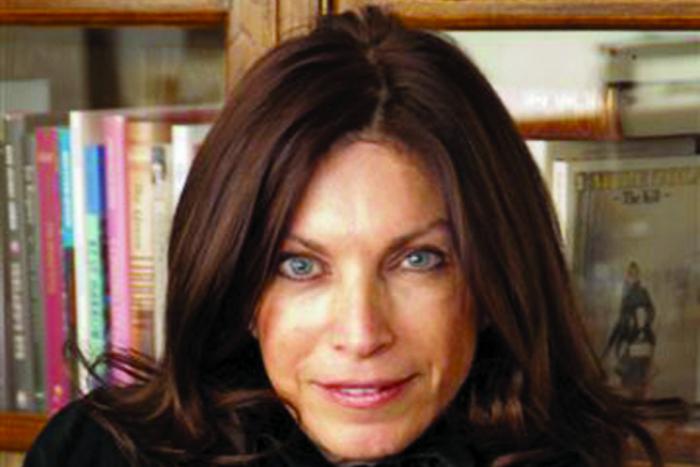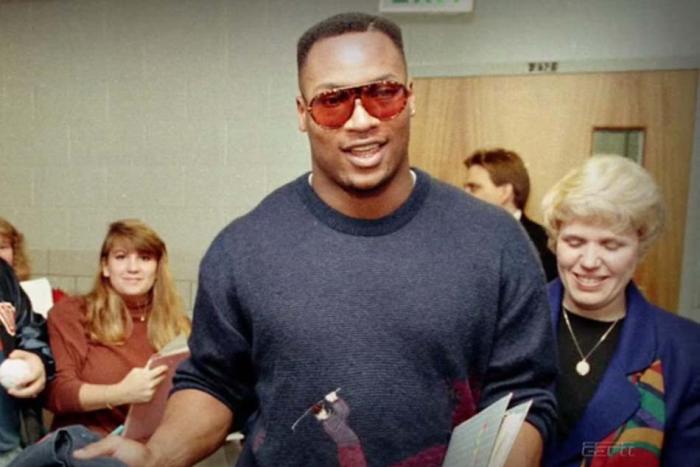It was said that actor Peter Sellers so excelled at his craft because he had no identity of his own—he simply became whoever he was playing. This tidbit goes through my mind often as, almost out of my control, I find myself shifting back and forth between accents.
My family moved from London to Toronto when I was 12. I was too old to simply absorb a new accent, but young enough to want to. For years, I tried affecting a Canadian accent at school to fit in better, only to return to an English one when I got home. What Degrassi Junior High’s Stephanie Kaye did with makeup, I did with accents.
For obvious reasons, though, it never felt right. I also got older and realized that an English accent was about the only possible way I was ever going to impress a girl, and I began to try harder to not lose it. As it turns out, spending years flirting with faux-multiple personality disorder does things to your brain. Today, find me in a loud bar in which I’m already having trouble being heard, and I seem to involuntarily slip into the emphasized R’s and “can’t pronounced like cant” of North American accents. In a quiet room, or when I’m “on” (like, say, on a podcast), or if I’m just a bit drunk, my roots in East London show themselves. It’s almost as if I’m never quite sure which me is going to come out of my mouth before I open it.
Which brings me, of course, to Iggy Azalea.
The Australian-American rapper, whose catchy “Fancy” has rocketed her to fame, is a conundrum. Her tendency to speak in an Australian accent and rap as if she were raised in the same streets that brought us crunk is confounding—almost the verbal equivalent of blackface. Couple that with rumours that Azalea doesn’t write her own rhymes, and all of a sudden, the ghost of authenticity starts rattling its chains. Azalea claims to be the realest, but must you always “speak like yourself” in order to be considered “true”?
Sincerely putting on an accent and trying to get away with it seems to border on the mentally unstable. Unlike other affectations or fashions, the way in which one talks is thought to be an expression of an inner self. “Speak in your own voice,” says the self-help guru, exhorting you to not only match the inside and outside of identity, but by extension, that in doing so, one is authentic.
For how often the word comes up, though, to talk about authenticity is already starting to feel anachronistic., The era of the simulacrum—everything from doubt about the Rob Ford crack video to the sickeningly indistinguishable repetition of the second Gulf War—has meant that searching for the authentic, true thing is already a mess. Couple that with the malleability of truth online and the increasingly common phenomenon of a fractured, impossible-to-agree-upon narrative of history or current events, and the idea that we could even find the authentic, let alone define it, to seem naïve.
Yet, more than that, the idea of authenticity when it comes to people themselves is not neutral, but actually part of a pernicious set of ideas. Consider: A quick, neat condemnation of Azalea’s accent that claims “that accent belongs to black people” is often implying that there is a natural link between bodies and culture. It reeks of essentialism—the idea that people contain inherent “essences” within them that they then express outward. It’s that ideology that enables everything from courageously stupid columns about how women are just more social and happy to make popcorn, to the idea that certain races are, indeed, “lesser.” Saying that culture “belongs” to one group tries to argue that culture is natural or inborn, and it is a thing that can always be turned back on the person making the claim.
If that’s true, however, the tricky thing about accents is that they are not just markers of culture, but also, by association, differing aspects of the global contemporary. Witness French NBA fans dropping African-American phrases when watching basketball, or wealthy young Indians peppering their English with words pronounced as if they’re ripped from Scandal—which, of course, they are—and it becomes impossible to not consider the accent as a performance of what you know about the now. We invoke accents in jest, as often happens with Scottish and Irish ones, or in paying homage to classic film, like the endless quotes of The Godfather or Scarface attest to—all in the service of displaying our knowledge of culture.
What, then, does one do about claims upon the accent? If accents belong to people, then not only does the insidious idea of essentialism linger, it also makes illegitimate the global millions whose faces don’t “match” the way they speak. On the other hand, if everyone from Amy Winehouse to Ed Sheeran to Led Zeppelin can pick up an accent for which they have no essential need, then the long and storied tradition of, say, white artists profiting off black music—with no “trickle down” effects—continues unabated and unquestioned.
I’d guess Iggy Azalea started off like any normal person: alone and young in Miami, mimicking her favourite rappers in front of the mirror, immersing herself in the music she loved. After years of work and some breaks, she found herself with T.I. and crowds of adoring fans, carrying some of the edge and grit of southern rap with the saleability of a pretty white face and pop hooks to the world. And it’s just that transition from private to public that marks out what’s wrong with Azalea: not that she stole something that belongs to someone else, or even that she’s “inauthentic,” but that she’s part of a system that erases history and people, then profits from it.
There is no pure core to a person. Or, if you assert that there is, you have to be willing to live with the consequences of your belief: that culture is natural, traits are inborn, we are all simply who “nature” intended us to be, and anyone who contravenes that is “false.” Perhaps it’s my own hybrid identity that prevents me from accepting that, but I can’t abide by an ideology that says we simply are who we are, rather than empty vessels into which is put culture, belief, and language.
Still, resisting essentialism means walking a fine line between refusing the erasure of the past, and embracing a more fluid, open concept of what it means to be human. And it’s that last part that I, vacillating back and forth between my English and Canadian accents, am still struggling with. After all, for all the heady talk about a free-flowing, modern identity, the idea that there exists a true centre to identity is still compelling, and weighs upon me. At times, I’m convinced I’m simply inauthentic, camouflaging myself in order to fit in as the environment demands.
But as I’ve gotten older, I’ve come to believe that, unlike Peter Sellers and his acting, my verbal changeability is not a sign of a lack of personality. Rather, it’s a function of what it means to be many things at once, but never just one—that one will always speak as befits an insistent now, because there is no pure centre from which to do so.






